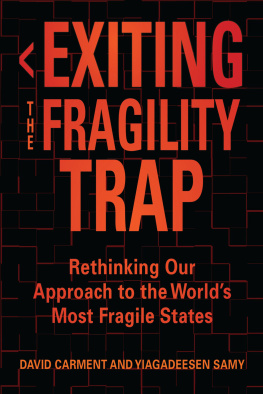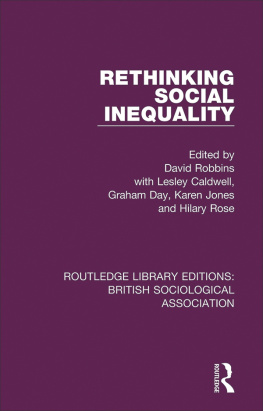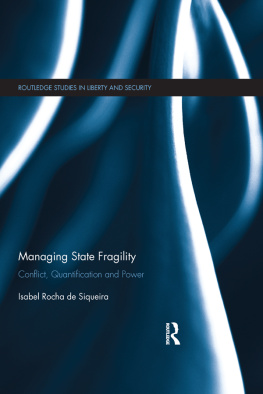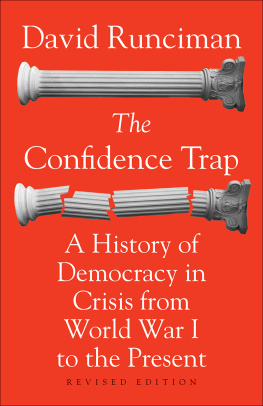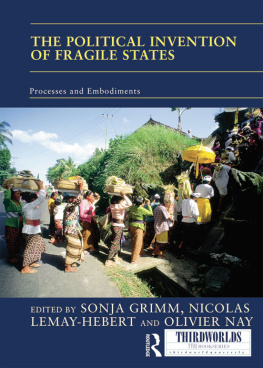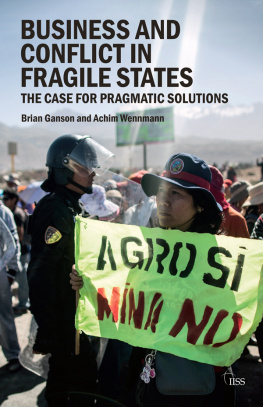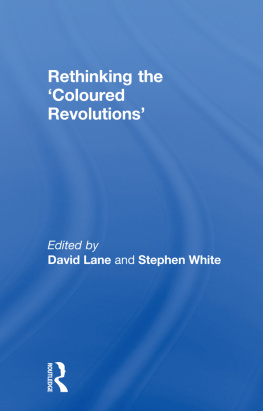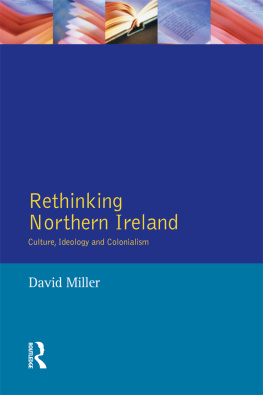Exiting the Fragility Trap
SERIES IN HUMAN SECURITY
Series editors: Geoffrey Dabelko, Brandon Kendhammer, and Nukhet Sandal
The Series in Human Security is published in association with Ohio Universitys War and Peace Studies and African Studies programs at the Center for International Studies and the Environmental Studies Program at the Voinovich School of Leadership and Public Affairs.
Technologies of Suspicion and the Ethics of Obligation in Political Asylum, edited by Bridget M. Haas and Amy Shuman
Exiting the Fragility Trap: Rethinking Our Approach to the Worlds Most Fragile States, by David Carment and Yiagadeesen Samy
Exiting the Fragility Trap
Rethinking Our Approach to the Worlds Most Fragile States
David Carment and Yiagadeesen Samy
OHIO UNIVERSITY PRESS|ATHENS
Ohio University Press, Athens, Ohio 45701
ohioswallow.com
2019 by Ohio University Press
All rights reserved
To obtain permission to quote, reprint, or otherwise reproduce or distribute material from Ohio University Press publications, please contact our rights and permissions department at (740) 593-1154 or (740) 593-4536 (fax).
Printed in the United States of America
Ohio University Press books are printed on acid-free paper

29 28 27 26 25 24 23 22 21 20 195 4 3 2 1
Library of Congress Cataloging-in-Publication Data
Names: Carment, David, 1959- author. | Samy, Yiagadeesen, author.
Title: Exiting the fragility trap : rethinking our approach to the worlds most fragile states / David Carment and Yiagadeesen Samy.
Description: Athens : Ohio University Press, 2019. | Series: Series in human security | Includes bibliographical references and index.
Identifiers: LCCN 2019028379 | ISBN 9780821423905 (hardcover) | ISBN 9780821446867 (pdf)
Subjects: LCSH: Political stability--Developing countries--Case studies. | Legitimacy of governments--Developing countries--Case studies. | Nation-building--Developing countries--Case studies. | Developing countries--Politics and government--Case studies.
Classification: LCC JF60 .C37 2019 | DDC 320.9172/4--dc23
LC record available at https://lccn.loc.gov/2019028379
Acknowledgments
Building on twenty years of research on fragile states, this book really is a labor of love. It reflects our prior knowledge on the subject along with new insights on research design and analysis. It represents the kind of interdisciplinary, policy-relevant, multimethod approach that the Norman Paterson School of International Affairs, where we are both based, has become famous for in its teaching and publications. Transforming all this complexity into the written word would not have been possible without the support of several organizations, individuals, and funding agencies. We are greatly indebted to many of the schools excellent PhD students whose painstaking research and consummate writing skills contributed greatly to the completion of this volume. Joe Landry, an expert on fragile states in his own right, contributed significantly to our thinking about the fragility trap concept, to data collection and analysis, and to the Mozambique and Bangladesh case studies. Scott Shaw was responsible for much of the background research on Mali and Laos. Scotts ideas on isomorphic mimicry, the rent economy, elite capture, and backsliding shine through in several chapters. Rachael Calleja contributed greatly to the background research on Pakistan and Yemen along with Christopher Ostropolski. Mark Haichin was a significant help in providing thorough literature reviews on legitimacy traps and unconsolidated democracy. Together with Rachael, Mark assisted with the creation of the various graphics that appear in this volume. Simon Langlois-Bertrand was hugely important in collecting and analyzing the data. We are also deeply indebted to Dr. Peter Tikuisis, whose work on fragile states typologies was an inspiration for our own work and whose contributions to the Country Indicators for Foreign Policy (CIFP) project has been a significant addition, including his creation of a CIFP-based minimalist data set. In addition to these individuals, David Carment would like to thank the Centre for Global Cooperation Research, Duisburg, where he was a fellow in 201415 and where much of the preliminary work was completed. Hugely important as well was the World Institute for Development Economics Research (WIDER), where Carment was a visiting scholar in 2017. WIDERs support toward the completion of this manuscript was instrumental. Sage guidance from WIDER staff members Rachel Gisselquist, Tony Addison, and Finn Tarp along with many of the visiting and resident institute fellows helped significantly. Yiagadeesen Samy would like to thank Carleton Universitys special grants program, which allowed us to hire research assistants to help with data collection and analysis. He is also indebted to the various scholars who have shaped his thinking, both theoretical and empirical, about the nature and persistence of fragility, especially in sub-Saharan Africa. Finally, Carment and Samy would also like to thank the Social Sciences and Humanities Research Council of Canada for its support in funding this research.

